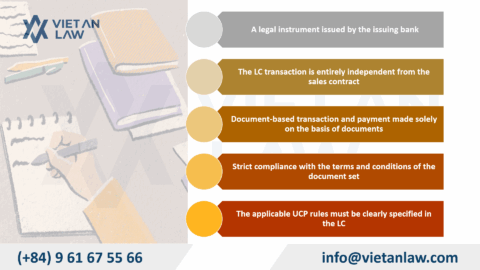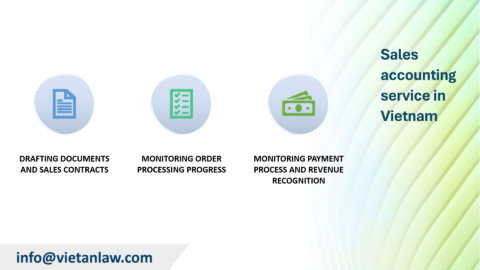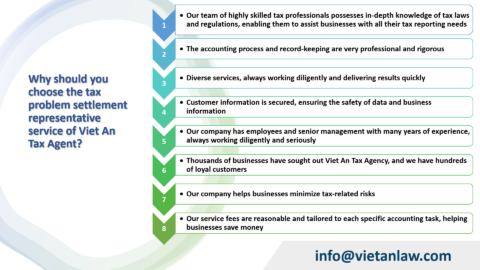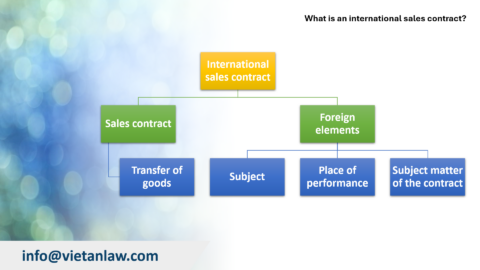In Vietnam, if it is a contract for the sale of goods, the relevant laws are commercial and civil legal documents, specifically the Civil Code, Commercial Law, Investment Law, Enterprise Law, etc., legal documents guiding the above Laws; The Decree guides the Commercial Law on the purchase and sale of goods., the Decree stipulates a list of goods with restricted business conditional business or prohibited business.
If it is an international goods sale contract, knowledge of commercial habits, practices, international practices, international treaties to which Vietnam is a member, bilateral and multilateral international commitments, and Vietnam’s regional commitments and laws related to the legal status of the parties are also very important knowledge and information directly related to the content as well as the legality and validity of the contract. In addition, those directly involved in the process of drafting and negotiating contracts must also review and pay attention to all legal documents related to the content and field of the contract.

When drafting contracts, businesses often do not ensure factors such as:
In principle, the content of the contract must be agreed upon by the parties according to the principles of free will, equality, and goodwill towards each other. However, the law also requires that the content of the contract must not violate legal prohibitions or be contrary to social ethics.
Legal prohibitions are legal provisions that do not allow subjects to perform certain acts.
Social ethics are common standards of behavior between people in social life, recognized and respected by the community.
Under Articles 19, 20, and 21 of the Civil Code, a person aged 18 years or older is an adult and a young person is a person with full civil act capacity. Thus, according to this regulation, only people who are 18 years of age or older can establish and exercise civil rights and obligations by their actions. For other cases under 18 years old, when entering into, establishing, or performing a certain civil transaction, the consent of the legal representative must be obtained. This regulation is intended to protect transactions that, when established, must be established by people who are capable of deciding all their actions on their behalf, ensuring that they do not cause damage to others.
In cases where a person is 18 years old but has a mental illness or other illness that causes loss of behavioral capacity, he or she cannot enter into a contract on his or her own and must have a legal representative.
Similarly, for people from 6 years old to under 18 years old, when entering into a contract, they must also have a legal representative agree.
In principle, the time an organization, enterprise, or legal entity is considered to have full civil act capacity must be based on the provisions of Article 74 of the Civil Code. Enterprise law is considered the main legal source that regulates the civil act capacity of organizations/enterprises/legal entities. In addition, which field that business/organization operates in will be subject to further regulation by the legal documents of that field, for example, laws on business, trade, investment, banking, credit institutions, insurance institutions, etc.
Normally, the behavioral capacity of a legal entity or organization is recognized from the moment the enterprise is legally established/recognizes its legal existence, for example from the date it is granted a business license, issuance of establishment license, or the date that the law requires opening or registration to be considered established. And only if businesses, organizations, or legal entities are considered to have full civil act capacity.
According to the provisions of the Civil Code, the civil capacity of a legal entity arises and terminates at the same time as the legal entity is established and terminates. This regulation means that when a legal entity is formed and recognized by law, that legal entity has full civil capacity and civil rights and obligations appropriate to its operating purposes.
This is one of the important contents related to the legal position of the parties as well as the validity of the contract. According to the provisions of Clause 3, Article 134 of the Civil Code, the representative must be a person with full civil legal capacity and civil act capacity.
Representing an organization/legal entity is usually specified in the decision of a competent state agency, in the charter of the legal entity, or according to the provisions of law.
In practice, authorization is also recorded in a series of documents with other evidentiary value such as the organization’s operating regulations, decisions stipulating the responsibilities, tasks, and powers of each leader and members of the business, and even in the offering notice, etc. These documents, in principle, are valid to prove the assignment of the business/organization’s leaders to the leaders and other members of that organization/business.
When participating in drafting and signing a contract, the parties to the contract must pay close attention to the legal status of the authorized representative and the scope of authorization to avoid future disputes due to the signing of a contract without or beyond authority or beyond the scope of authorized representation.
A commercial contract is a type of contract that is not only governed by law but also influenced by commercial habits, practices, customs, and international law. Commercial franchises, goods lease contracts, etc. are highly specialized contracts with complex content and related to many specific specialized fields. To ensure the smooth implementation of the contract, it is very important to introduce concepts for the contents that need to be understood and applied consistently and scientifically. This is necessary to avoid conflicts and arguments between the parties regarding the interpretation of that content as well as to control the situation of arbitrary application of the terms of the contract, causing destruction contract.
Depending on the type of contract, content, scale, and nature of the contract, contracts, in addition to their nature, also have contract tables of contents. The contract table of contents is necessary and effectively supports the process of drafting, negotiating, and implementing contracts.
In cases where the contract does not have provisions on concepts or terminology, and when the terms of the contract can be explained in many different ways, the most appropriate and scientific explanation must be chosen to explain for each specific case. For example. interpretation according to custom; special explanation of the overall relationship of the contract; explanation in favor of the weaker party.
In business relationships, “trust” is one of the supreme criteria that both parties aim to build long-term and sustainable commercial relationships. However, the criterion of “trusting each other” to serve the “profitable” purpose of commercial activities must not only be expressed in the number of transactions, time spent doing business together, and contract value. If parties trust each other, the parties must be even more clear and fair about the contents related to each other’s rights, obligations, and responsibilities in the contract. As mentioned within the scope of this article, contracts have a very important function in helping parties predict, forecast, and calculate their profits and risks. Contracts help parties increase profits and also help parties limit and control risks that may be encountered in the business process. From that point of view, during the process of drafting, negotiating, and consulting contracts as well as depending on each specific contract, the following contents must be considered important provisions that need to be noted and agreed upon thoroughly:
Above is Viet An Law’s advice on common errors in signing, performing commercial contracts in Vietnam. If you need advice on drafting commercial contracts, please contact Viet An Law for the most effective support.




